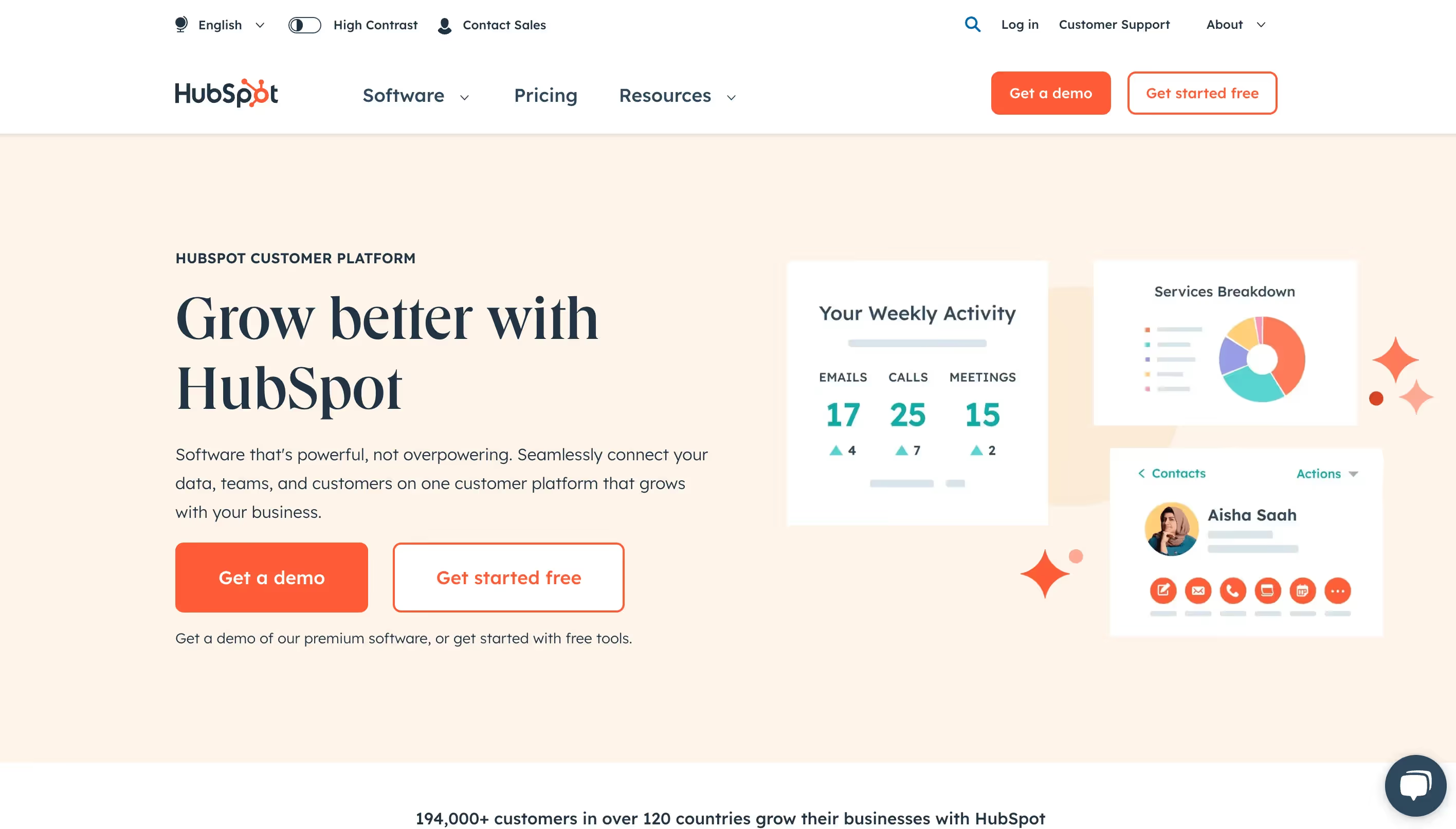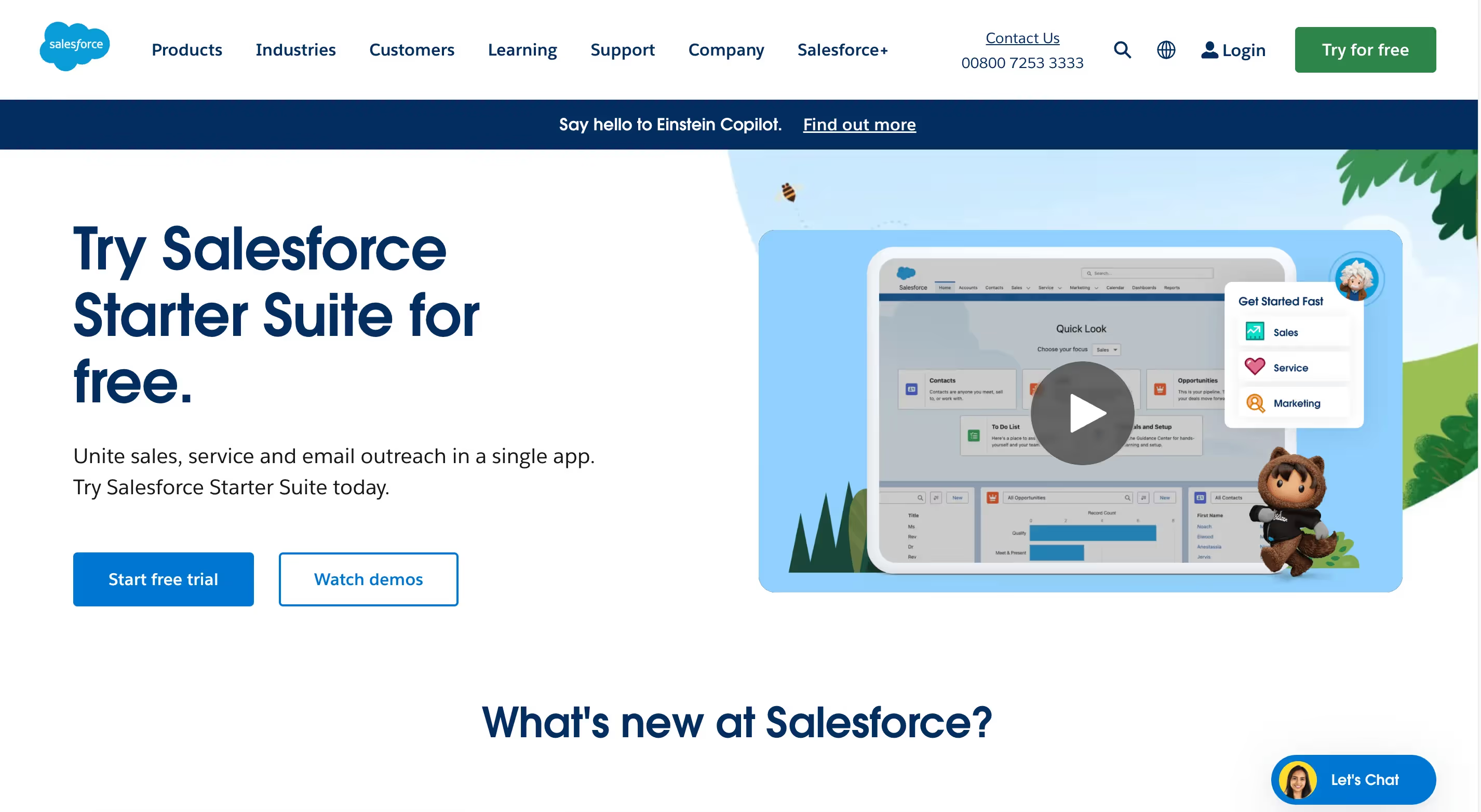tl; dr
- Product marketing software is essential for automating and optimizing go-to-market activities.
- It helps in understanding product-market fit, creating compelling messaging, and engaging with the target audience. You can use user behavior information and competitor research to increase the effectiveness of your activities.
- Product marketing software empowers you to understand and engage with the market, optimize workflows, automate processes, personalize and target messaging, and improve cross-collaboration.
- Key features of product marketing software include integration capabilities, multi-channel marketing, analytics and reporting, marketing automation, competitor analysis, SEO optimization, customizability, and scalability.
- Recommended product marketing software tools include Survicate, Hotjar, HubSpot, Salesforce, SEMrush, Ahrefs, GetResponse, Slack, Notion, Segment, and Mixpanel.
- Tips for product marketing teams include collecting feedback, optimizing campaigns with personalized messages and targeting, effective cross-collaboration, and utilizing sentiment analytics tools.
Product marketing is evolving fast, and with more and more tools, competition and technologies entering the market, it's becoming challenging to stay ahead.
But new challenges can bring new opportunities if you have accurate automations and contextual customer insights.
.avif)
Whether you're an experienced marketer or those are your first steps in the product marketing world, you will need the right tool stack.
From collecting customer insights to automating workflows, the right product marketing tools can help with elevating the customer journey.
Dive into this comprehensive guide to discover tools every product marketer needs.
When do you need product marketing software?
Product marketing software has become an integral tool in the arsenal of every product marketer. In a market where competition is high, it's essential to have a platform that streamlines your go-to-market strategy and execution.
This type of software helps you understand your target audience, create resonating messaging, and engage with your audience in a more meaningful way.
By leveraging the best product marketing tools, you're equipped to make data-driven decisions, enabling your product to stand out and meet consumer demand faster.
Manage product launches and promotional campaigns with the right software to ensure that each aspect of your product marketing is coherent and on schedule. From content creation and distribution to feedback collection and performance analysis, product marketing software simplifies these processes.
If you need assistance in analyzing consumer behavior consumer behavior, identifying market trends, tracking competitor activities, product marketing software might be exactly what you need.
This not only helps in reducing time-to-market but also enhances the impact of your marketing efforts.
A strong product coupled with robust marketing software can increase visibility, customer engagement, and, ultimately, sales growth.
Traditional vs product marketing efforts
Product marketing and traditional marketing differ in their focus and approach.
Traditional marketing typically involves promoting a company's overall brand and its range of products or services to a broad audience. It often focuses on a wider approach than product marketing which is focused on specific features and characteristics of a product.
Dedicated tools play a crucial role in product marketing by providing specialized capabilities tailored to the unique needs of promoting and managing specific products.
These tools enable product marketers to conduct targeted research, optimize content, and execute precise marketing campaigns aimed at driving the success of product launches.
What is the role of product marketing tools?
Product marketing tools empower you to understand your customers better and engage with your market. It's impactful in delivering impactful messaging through marketing automation and manage feedback.
Understanding customers
Your market research efforts are greatly enhanced with product marketing tool that will support your knowledge about customers. By analyzing customer data and behavior, you understand your target audience at a granular level, allowing you to tailor your marketing approach effectively.
Streamline workflows
This software lets you streamline your workflows, aligning product managers and marketing teams. Your brand stays consistent across all channels by simplifying tasks, tracking progress, and reducing redundant efforts.
Automate processes
Automation is key in executing a consistent marketing strategy. By automating repetitive tasks, you ensure timely interactions with your audience, leading to increased efficiency and a potential uptick in product interest and sales.
Personalize and target messaging
Introducing the right tool will help you personalize your messaging and run A/B test.
Customization is crucial for engagement and capturing interest. To increase the effectiveness of your activities, make sure to customize the content of messages and target it to the right segments.
Improve cross-collaboration
An integrated platform enhances cooperation among different teams. When product managers work closely with marketing, sales and product, the unity of vision helps in crafting a cohesive brand narrative and achieving unified business goals.
This can also speed up task execution and minimize the chances of potential misunderstandings.
What are the crucial features of a product marketing tool?
Selecting the right product marketing software lets you stand out. Understanding key features is essential to leveraging the power of product management platforms.
Key features to look for
1. Multi-channel marketing: A robust tool should support marketing across various channels. Multi-channel functionality means you can manage campaigns on social media, search engines and email.
- Email campaigns: Tools should offer features to create, track, and optimize email marketing campaigns and workflows.
- Social Media management: Schedule posts, monitor engagement, and analyze social media metrics.
2. Analytics and reporting: You can make data-driven decisions with powerful analytics. Google Analytics exemplifies the depth of reporting needed to understand market trends and measure campaign success.
- Traffic analysis: Monitor metrics like page views, user sessions, and bounce rates.
- Campaign performance: Evaluate the effectiveness of your marketing strategies through conversion rates and ROI analysis.
3. Automation: Automation features streamline repetitive tasks, freeing you up to focus on strategic decisions.
- Email automation: Set up auto-responders and trigger-based emails for efficient customer communication.
- Lead nurturing: Automate lead nurturing sequences to advance leads through the sales funnel without manual intervention.
4. Competitor analysis: Your software should allow you to track and analyze your competitors. Understanding how your products stack up against the competition helps tailor your marketing to highlight unique selling points.
- Competitor tracking: Features to evaluate competitors’ market presence and strategies.
- Benchmarking tools: Compare your performance metrics against industry standards or direct competitors.
5. SEO tools: Optimize content with built-in SEO tools to ensure high visibility on search engines and attract organic traffic.
- Keyword analysis: Identify high-performing keywords for your content and ads.
- SEO audits: Regularly analyze your website’s SEO to improve rankings.
6. Customizability and scalability: The platform should grow with your business. Customization allows you to tailor the software to your needs.
- Dashboards: Customize dashboards to display the most relevant information at a glance.
- Scalable infrastructure: Ensure that as your business grows, your product marketing software can handle increased demand.
- Integration capabilities: Integrate with other data sources, ensuring that you can synchronize data across platforms.
How can you benefit from implementing product marketing tools?
Customer insights and feedback
The best product marketing tools provide valuable customer insights and feedback that are essential for the role of a product marketing manager.
These tools enable managers to gather and analyze data on customer behavior, preferences, and purchasing patterns. By understanding the needs of your target audience, you can make informed decisions about product positioning, messaging, and go-to-market strategies.
Accessing real-time feedback and sentiment analysis empowers you to adjust the marketing tactics and product offerings to better meet customer expectations, ultimately driving higher sales and customer satisfaction.
Optimizing Marketing Campaigns
Advanced analytics and reporting capabilities that allow managers to measure the effectiveness of their customer communication. This is something you might want to look for in product marketing tools.
By tracking key performance indicators such as conversion rates, click-through rates, and customer engagement metrics, managers can identify areas for improvement and make data-driven decisions to optimize their marketing efforts.
This ability to continuously refine and improve marketing campaigns is crucial for PMMs to achieve their sales and revenue targets, as well as to maximize the return on investment for their marketing spend.
Content Creation and Management
Streamlining processes and product marketing tools can impact creating and managing marketing content.
These tools often include templates, design assets, and collaboration features that enable managers to efficiently create and distribute marketing materials across various channels. By centralizing content management, product marketing managers can ensure consistency in branding and messaging while also saving time and resources when creating content.
Leveraging Email Marketing
Email marketing remains a powerful tool for reaching and engaging with potential customers, and the best product marketing tools offer flexible email marketing capabilities.
Product marketing managers can utilize these tools to segment their email lists, personalize content, and automate email campaigns based on customer behaviors and interactions. This targeted approach to email marketing allows managers to nurture leads, drive conversions, and build long-term customer relationships, all of which are essential for achieving sales and revenue goals.
Sales and Marketing Alignment
Product marketing tools facilitate better alignment between the sales and marketing teams.
These tools enable you to share insights, collaborate on campaigns, and track the performance of marketing efforts in relation to sales results. By fostering closer collaboration and communication between these two departments, product marketing managers can ensure that marketing initiatives are closely aligned with sales objectives, leading to more effective go-to-market strategies and increased revenue generation.
Marketing Automation and Workflow Management
Marketing automation and workflow management capabilities in product marketing tools can be invaluable.
These features allow managers to automate repetitive marketing tasks, such as lead nurturing, email campaigns, and social media posting, freeing up time to focus on strategic initiatives based on information about user behavior and customer data.
By automating these processes, product marketing managers can ensure consistent and timely communication with customers, as well as streamline their marketing operations for greater efficiency.
Additionally, workflow management tools help managers organize and track the progress of marketing projects, ensuring that deadlines are met and resources are allocated effectively.
Product Launch and Promotion
For marketing professionals, the successful launch and promotion of new products is a critical responsibility, and product marketing tools play a pivotal role in this process.
These tools provide marketers with the ability to plan and execute comprehensive product launch strategies, including creating targeted marketing campaigns, coordinating cross-functional teams, and managing promotional activities across multiple channels.
By leveraging these tools, product marketing managers can effectively generate demand for new products, ultimately driving successful launches.
Integration and Collaboration
Effective integration and collaboration are essential to orchestrate cohesive and impactful marketing initiatives, and best product marketing tools facilitate these processes.
These tools often offer integrations with other marketing platforms, customer relationship management systems, and analytics tools, allowing managers to centralize data and streamline their marketing operations.
Furthermore, collaboration features within these tools enable cross-functional teams to work together seamlessly, ensuring that marketing efforts are aligned with overall business objectives and delivering a consistent brand experience to customers.
Best Product Marketing Software to Try in 2024
Selecting the right product marketing software can significantly enhance your understanding of customer preferences and streamline your marketing activities.
The following tools are at the forefront in 2024, offering advanced features and integrations to elevate your strategy.
Customer Insight and Feedback
Customer insight and feedback tools are essential to gather valuable information about customer preferences and behavior.
1. Survicate

Survicate is a powerful but effortless tool that allows marketers to create targeted surveys and gather feedback directly across user journeys.
This platform provides valuable insights into customer needs and preferences, helping product marketing managers make informed decisions. Gain deep insights into your customer's experience through targeted surveys.
You can use this software to tailor your product development and marketing strategies.
With real-time insights, you will be able to support your conclusions and make data-driven decisions to increase your conversion rates and brand recognition.
You can integrate Survicate with variety of tools such as product management platforms, data analytics, CRMs and Marketing automation tools to unify and reuse data across sources.

2. Hotjar
Hotjar offers a comprehensive suite of tools to understand how users interact with a website, including heatmaps, session recordings, and feedback polls. By analyzing user behavior and feedback, you can optimize their strategies and improve the overall customer experience.
This is a useful tool for marketers focused on understanding website experience and user behavior in products. By implementing user feedback and optimizing experiences thanks to a complete understanding of the user journey, you can gain a competitive advantage.

Marketing automation and workflow management
Automated marketing campaigns and workflow tools are invaluable for streamlining their processes and maximizing efficiency.
3. HubSpot
HubSpot is a well-known platform that offers a wide range of automation features, including email marketing, lead nurturing, and customer relationship management. With its intuitive interface and powerful automation capabilities, product marketers can create targeted campaigns and automate repetitive tasks to focus on strategic initiatives.

4. Salesforce
Offers robust campaign management tools that can be highly personalized for your target audience, ensuring that your marketing efforts resonate well with potential customers.
This is an enterprise tool offering solutions for marketing but also customer service and sales teams. This can be especially useful for growing and large organizations that need one source of truth for all teams that will improve collaboration.
Both HubSpot and Salesforce also offer solutions for Customer service and Sales teams, which can improve collaboration and exchange of information between those departments in your team.

Content Creation and Management
Content creation and management tools are essential for optimized content strategies.
5. Semrush
SEMrush offers a comprehensive suite of features, including keyword research, content optimization, and competitor analysis, empowering product marketers to create high-quality, targeted content that resonates with their audience.
With its content marketing toolkit, SEMrush enables managers to identify relevant topics, optimize their content for search engines, and track their performance over time.

6. Ahrefs
Ahrefs provides powerful content research and management capabilities, allowing product marketers to discover content ideas, analyze competitors' strategies, and monitor their content's performance.
By leveraging the content creation and management tools, product marketing managers can enhance their content marketing efforts, drive organic traffic, and achieve greater visibility in the digital landscape.

Leveraging Email Marketing
Leveraging email marketing tools is crucial to effectively engage with their audience and drive conversions.
7. GetResponse
This is a comprehensive platform that offers a wide range of email marketing features, including email design, automation, analytics, and segmentation. Product marketing managers can utilize GetResponse to create visually appealing and personalized email campaigns, automate follow-up sequences, and analyze the performance of their email marketing efforts.
With its intuitive interface and advanced capabilities, GetResponse empowers you to optimize their email marketing strategies, nurture leads, and, ultimately, achieve their marketing goals.
With GetResponse, product marketers can enhance their email marketing initiatives, build stronger customer relationships, and drive business growth.

Management and Collaboration Tools
Management and collaboration tools are essential to streamline communication and enhance productivity.
10. Slack
Slack provides a platform for real-time messaging, file sharing, and team collaboration, enabling product marketers to coordinate with their teams, share updates, and streamline project management.
With its intuitive interface and extensive integration options, Slack facilitates seamless communication and collaboration across different departments.

11. Notion
Offers a versatile all-in-one workspace for note-taking, project management, and task organization, allowing product marketing managers to centralize their workflows, share knowledge, and manage projects effectively.

Analytics and Performance Measurement
Analytics and performance measurement tools are crucial to gain insights into customer behavior and track the effectiveness of their marketing strategies.
12. Segment
Segment offers a powerful customer data platform that enables managers to collect, clean, and control their customer data, providing a unified view of customer interactions across various touchpoints.
This allows product marketing managers to gain a deeper understanding of customer journeys and behaviors, ultimately informing their marketing decisions.

13. Mixpanel
Track your marketing performance with Mixpanel, which offers detailed analytics on user interactions. With its visualization tools, you can easily analyze and track user interactions, measure the impact of marketing campaigns, and optimize the customer experience.

Tips for product marketing teams
Product marketing strategy can enhance your team's performance and help to achieve better results by implementing best practices in utilizing product marketing tools.
Firstly, collecting feedback is essential for gaining valuable insights into customer preferences and needs, enabling managers to make informed decisions and tailor their strategies accordingly.
Ensure you analyze relevant information by filtering data and using AI analysis tools to speed up access to relevant conclusions.
Optimizing marketing campaigns with automated tools allows you to make sure you launch targeted outreach, driving engagement and conversions.
To reach the right audience and increase your chances of organic marketing activities, leverage content creation to develop a high-quality content strategy.
Lastly, integrating analytics and performance measurement tools enables product marketers to reuse data and ensure all relevant properties are available across the platforms.
By incorporating these few tips, product marketing managers can leverage the full potential of product marketing tools.
How to choose the best product marketing tool?
When choosing a product marketing tool, it's essential for product marketers to consider their specific needs and objectives.
Start by conducting a thorough assessment of the organization's marketing requirements, including the need for customer insights, campaign optimization, content creation, and sales alignment. Evaluate the features and capabilities of different product marketing tools, considering factors such as ease of use, scalability, integration with existing systems, and the level of support and training provided.
Additionally, seek input from cross-functional teams, including sales, marketing, and product development, to ensure that the selected tool aligns with the overall business goals.
Once a product marketing tool has been chosen, it's crucial to develop a comprehensive implementation plan. This plan should include defining clear objectives, establishing key performance indicators, and allocating resources for training and onboarding.
Summary
In conclusion, product marketing tools provide various benefits for product marketers, ranging from customer insights and feedback to marketing automation and workflow management.
By choosing the right ones for your business goals, product marketing managers can enhance their ability to understand and engage with customers, optimize their marketing campaigns, and drive successful product launches and promotions.
If you want to maximize the impact, make sure to use real customer data–from feedback surveys or in-app forms. You can connect tools like Survicate to your HubSpot, Segment, Mixpanel and many more accounts to improve personalization and targeting.
To improve reaction time on negative feedback and cross-collaboration, you can try condition-based email and Slack notifications.

















